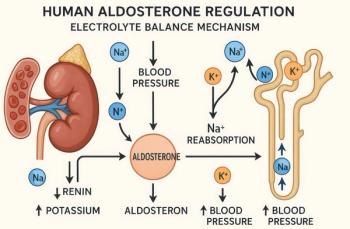
High LDL and HDL: Is Drug Therapy Required?
My patient is a 52-year-old woman with elevated levels of both low-density lipoprotein (LDL) and high-density lipoprotein (HDL) cholesterol. She does not have a family history of cardiovascular disease; has never smoked; is of normal weight; and does not have diabetes, hypertension, or known atherosclerotic disease.
My patient is a 52-year-old woman with elevated levels of both low-density lipoprotein (LDL) and high-density lipoprotein (HDL) cholesterol. She does not have a family history of cardiovascular disease; has never smoked; is of normal weight; and does not have diabetes, hypertension, or known atherosclerotic disease.
When I first saw her, about 6 months ago, she was eating a fairly "heart-healthy" diet. A lipid panel ordered shortly thereafter revealed a total cholesterol level of 241 mg/dL, triglyceride level of 78 mg/dL, HDL cholesterol level of 60 mg/dL, and LDL cholesterol level of 165 mg/dL; the resulting total cholesterol/HDL ratio was 4.0. Since she received these results, the patient has consumed less fat and exercised more. A month ago, her lipid levels were as follows: total cholesterol, 274 mg/dL; triglycerides, 73 mg/dL; HDL cholesterol, 67 mg/dL; LDL cholesterol, 192 mg/dL; and ratio, 4.1. According to current guidelines, a lipid-lowering agent should be started--primarily because of her LDL cholesterol level. However, the patient and I are both hesitant in view of her high HDL cholesterol level and lack of risk factors.
Would measurement of homocysteine and lipoprotein (a) levels be useful to clarify further her risk of atherosclerotic cardiovascular disease? Or should lipid-lowering therapy be started now?
---- Ruth Kennedy Grant, MDVergennes, Vt
The patient has a very high LDL cholesterol level (greater than 190 mg/dL) but no coronary heart disease (CHD) or CHD equivalents (diabetes mellitus, symptomatic carotid artery disease, peripheral arterial disease, or an abdominal aneurysm). She has no other major risk factors (cigarette smoking, hypertension, low HDL cholesterol level [less than 40 mg/dL], family history of premature CHD, or age [older than 45 years for men; older than 55 years for women]).
If her LDL cholesterol level is confirmed, then it would be wise to rule out hypothyroidism as a secondary cause of its elevation. If this is excluded, then based on the Adult Treatment Panel III guidelines, she should be treated with therapeutic lifestyle changes initially.1 Drug treatment is recommended in patients with 0 or 1 risk factor and an LDL cholesterol level greater than 190 mg/dL, and it is an option if the LDL cholesterol level is between 160 and 189 mg/dL.
At her current age, this woman's 10-year risk of a myocardial infarction or death from CHD is 1%. If her blood pressure is lower than 120/80 mm Hg, her 10-year risk of any cardiovascular event is 2%; if it is between 120/80 and 139/89 mm Hg, the risk is 4%. Although this patient is healthy now, I would not delay drug treatment; atherosclerosis develops over years. Based on the benefits of drug therapy among treated women in the Heart Protection Study,2 I would prescribe a statin.
---- L. Michael Prisant, MDCardiologistProfessor of MedicineDirector of Hypertension & Clinical PharmacologyMedical College of GeorgiaAugusta
References:
REFERENCES:
1.
National Cholesterol Education Program (NCEP) Expert Panel on Detection, Evaluation, and Treatment of High Blood Cholesterol in Adults (Adult Treatment Panel III). Third Report of the National Cholesterol Education Program (NCEP) Expert Panel on Detection, Evaluation, and Treatment of High Blood Cholesterol in Adults (Adult Treatment Panel III) final report.
Circulation
. 2002;106:3143-3421.
2.
Heart Protection Study Collaborative Group. MRC/BHF Heart Protection Study of cholesterol lowering with simvastatin in 20,536 high-risk individuals: a randomised placebo-controlled trial.
Lancet
. 2002;360:7-22.
Newsletter
Enhance your clinical practice with the Patient Care newsletter, offering the latest evidence-based guidelines, diagnostic insights, and treatment strategies for primary care physicians.
































































































































